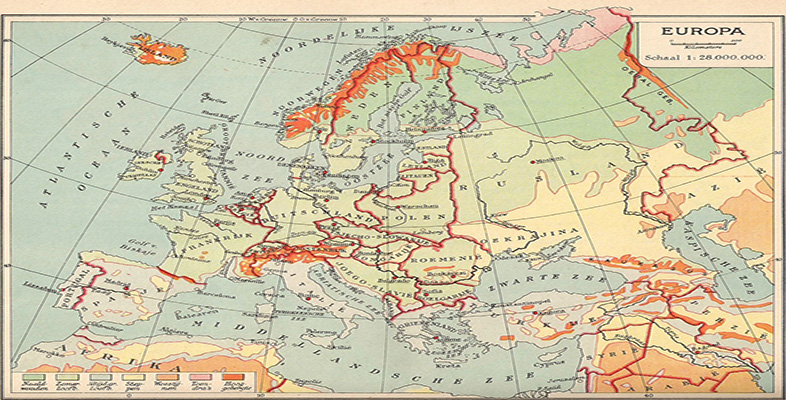5.3 Tradition and transformation
Identification of specifically European traditions, such as that of a European system of values, is no easy task. Europe arrogated the Christian faith to itself, but it was hardly in Europe that it originated and the practice of Christianity has never been restricted just to Europe. Modern Europe also identified itself with traditions of civilization, progress and a general superiority over other cultures and peoples, although European practice and the ends to which its growing power was put suggested that any superiority it possessed did not reside in any particular morality, culture or form of social organisation. Rather, what was notable in the development of modern Europe was the dynamism of its growth, the attention it paid to science and technology as a motor for development and the capacity it showed for the rapid accumulation of power and its intensive use both within and beyond the societies of Europe. In this sense a dominant European tradition has been that of change, and the transformations of urbanisation, industrialisation, and intensive economic development have been at the core of the European experience. Such processes contributed to the rapid pace of European modernisation, the expansion of its power and global reach, and the strong material base of the civilisation it came to develop.
In terms of politics and the patterns of state organisation, European traditions have equally tended to emphasize – as outlined in discussion of the two themes above – diversity rather than unity, and conflict rather than consensus. In consequence of this, and in relation to the primary focus of this course, one of the main features of European development has been the lack of any tradition of overall governance and the growing prominence from the seventeenth century of a balance of power as the major means for keeping conflict tendencies under control. Under the growing pressure of modern nationalism and the strong competitive tendencies inherent in modern state organisation this balance was increasingly disrupted and the mechanism finally broke down. Two world wars demonstrated the failure of this balance of power and led to the overall collapse of the European state system. Europe survived after 1945 with the support of the structures of global governance erected by the two superpowers.
By 1991 one of these, the Soviet Union, had disappeared, by which time at least part of Europe had developed new structures of political coordination and novel forms of self-regulation in some key areas. As the remaining superpower, the US continued to exercise an influence on the EU that was broadly supportive but also played a part in promoting elements of dissension that pointed to further elements of transformation. The distinction made by Donald Rumsfeld between ‘old’ and ‘new’ Europe (the latter generally referring to a number of east-central European countries), and the preference he stated for the latter in terms of its support for the US-British invasion of Iraq in 2003, cast a different light on the integration process that EU enlargement generally represented. But such views were by no means uncontested in the United States itself and there is clearly no such thing as a single American vision of Europe (Dalgaard-Nielsen, 2004, p.76).
It is in this context that the question can be posed of whether current transformations point to the eventual emergence of new and effective forms of governance for Europe on a lasting basis and, indeed, whether they can eventually be extended to apply to the European continent as a whole. If so, this will indeed mark a significant change. Europe and the societies it has formed have been defined far more by division and conflict as sources of creative change than by any commonality of values, shared vision or, even less, common form of rule or political allegiance. The emergence of what Martin Malia (1997, p.20) has called a ‘unity within integration’ would indeed represent a profound change and a development never seen on any inclusive European basis. If the illusions both of nationalism and communist ideology could be dispensed with, a new law-governed community might emerge throughout Europe as a whole. Such a fundamental transformation would, in this view, reflect the emergence of a modern new Europe comparable to, but quite different in nature from, that of mediaeval Christendom and the later secular formation of the early modern period, whose early democratic principles – given concrete form in the French Revolution – soon led to the disasters of political nationalism and the aberrant forms of twentieth-century totalitarianism.
